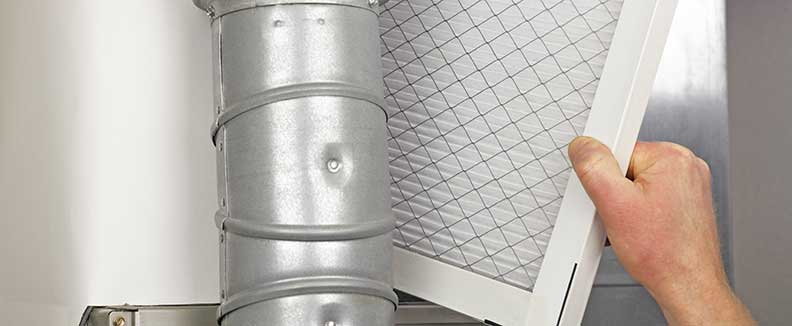HVAC Furnace Filter Replacement
HVAC furnace filters represent one of the most important components of central heating and air conditioning systems. They filter the air to reduce the amount of dander, dust, dirt, pollen, mold and other allergens within a person’s home or business.
The problem is that many customers forget that furnace filters inevitably become clogged by the contaminants they trap. This can result in poor system performance, excessive wear and a long list of undesirable outcomes.
All Pro Duct Cleaning offers the ability to replace our customer’s furnace filters when customers provide them. This can simplify the process of having clean air inside of a building.
What Types of Furnace Filters Exist?
While all furnace filters are designed to remove contaminants from the air of a system, not all filters will do so with the same efficiency.
There exist five common types of air conditioning filters:
- Disposable fiberglass filters – These are the cheapest option for removing dirt and dander, but also ineffective at removing smaller particles like mold spores.
- Disposable pleated filters – These filters use polyester or cotton paper to filter smaller particles. The drawback is that these filters must be removed on a regular basis to prevent them from clogging the system.
- Disposable electrostatic filters – These filters are similar to pleated filters, but use self-charging fibers to trap particles. These are cost-effective if a filter is a “common” size.
- Permanent electrostatic filters – Permanent electrostatic filters attract particles like their disposable cousins, but they can be reused for a number of years if cleaned regularly.
- High-efficiency pleated filters – These are the highest quality filters, but they are also the largest ones. These filters will remove the most particles and last about a year at a time.
The Benefits of Replacing Furnace Filters
The chief benefit of replacing furnace filters involves the improved performance of an air conditioning and heating system. Filters restrict air as they trap particles, which in turn forces the air conditioner to work harder. Changing filters prevents this.
Another advantage pertains to the filter’s ability to trap undesirable particles. Particles that aren’t trapped may go into the HVAC system, which in turn can diminish the overall life of the system.
The last major benefit involves a lack of contaminants in the air of an inside environment. New filters will more readily trap particles, which in turn results in cleaner air. This can mean that suffers of asthma and other respiratory conditions can have an easier time breathing.
How Often Should a Filter Be Changed?
The frequency a furnace filter should be changed will depend upon the type of furnace filter and the quality. Fiberglass and pleated filters should be changed between every 14 to 30 days for the best performance. Electrostatic filters will need to be changed every 60 to 180 days, just as permanent filters will need to be cleaned. High-efficiency pleated filters should be replaced yearly.
